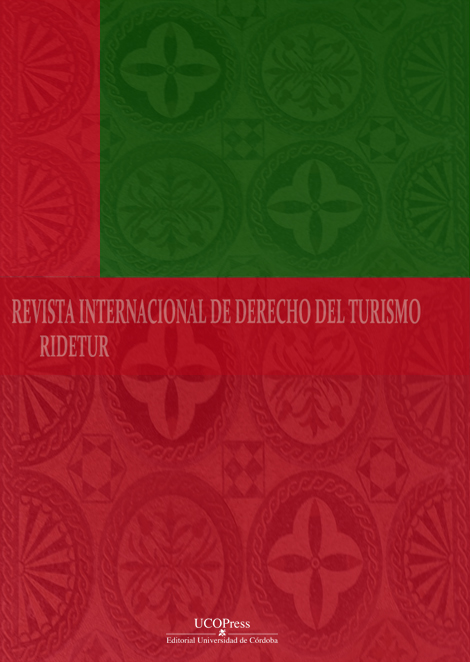POLICE CONTROL IN THE CASE OF TOURIST ACCOMMODATIONS AND ITS IMPACT ON SECURITY
Main Article Content
Abstract
For this the methodology to be used will be the legal-descriptive one, analyzing the rules that regulate this modality, resorting to the primary sources, and to the doctrine.
As main results it should be noted that although recently it has been regulated the obligation that said tourist establishments are in possession of a registry book where they archive all the entry parts of travelers staying in said property, by Autonomous Community, however the Administration does not It has control instruments that allow to quantify the number of accommodations and consequently carry out its control.
The not being able to carry out a control over the fulfillment of the obligatory nature of communicating the identity of the travelers to the State Security Forces and Bodies, entails a risk for the security of the destinations and although today does not generate a harmful effect yet on tourism, which may end up causing a relocation to safer destinations.
Downloads
Article Details
Política propuesta para revistas que ofrecen acceso abierto. Aquellos autores/as que tengan publicaciones con esta revista, aceptan los términos siguientes:
a.Los autores/as conservarán sus derechos de autor y garantizarán a la revista el derecho de primera publicación de su obra, el cual estará simultáneamente sujeto a la Licencia de reconocimiento de Creative Commons que permite a terceros compartir la obra siempre que se indique su autor y su primera publicación esta revista.
b.Los autores/as podrán adoptar otros acuerdos de licencia no exclusiva de distribución de la versión de la obra publicada (p. ej.: depositarla en un archivo telemático institucional o publicarla en un volumen monográfico) siempre que se indique la publicación inicial en esta revista.
c.Se permite y recomienda a los autores/as difundir su obra a través de Internet (p. ej.: en archivos telemáticos institucionales o en su página web) antes y durante el proceso de envío, lo cual puede producir intercambios interesantes y aumentar las citas de la obra publicada.
